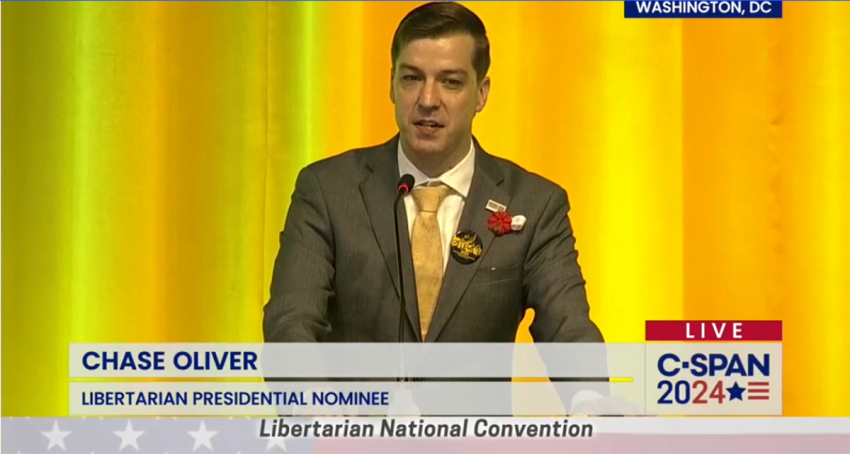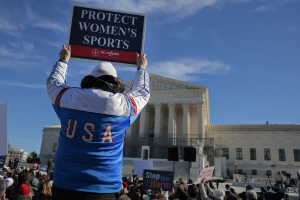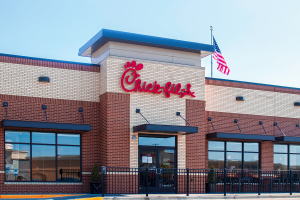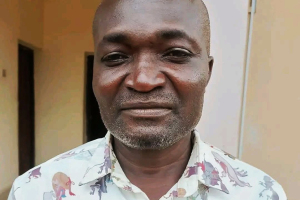Libertarians select Chase Oliver as their presidential nominee

The Libertarian Party has chosen its nominee for the 2024 presidential election as American voters are less than six months away from making the decision as to who will lead the United States for the next four years.
Over the weekend, the Libertarian Party nominated Chase Oliver as its presidential candidate at the Libertarian National Convention in Washington, D.C. Mike Ter Meet, who sought the Libertarian presidential nomination in his own right, will serve as the party’s vice-presidential nominee. Minutes from the event reveal that Oliver secured the nomination on the seventh ballot.
At age 38, Oliver would be the youngest candidate ever elected president. Oliver has previously sought federal office in unsuccessful bids to represent Georgia’s 5th Congressional District in the U.S. House of Representatives and to represent Georgia in the U.S. Senate.
Oliver would also become the first openly gay president if elected. In a post on X last year, Oliver asserted, “There are many LGBTQ people with a deep faith in the gospel, myself included.”
Oliver’s presidential platform calls for “abolishing the Department of Education and block granting these funds back to the states to be returned to taxpayers.” On the contentious issue of abortion, Oliver believes that “there can be good faith positions on both sides of the abortion debate.”
Indicating his personal belief that abortion is a “province of individual choice and bodily autonomy,” Oliver vowed that “I will work to encourage states to decriminalize abortions, as these decisions should rest in the hands of individuals and their doctors.” He also signaled his intention to “encourage the passage of the Hyde Amendment, which will prevent federal dollars from funding abortion clinics.”
“I will encourage states to incentivize alternatives to abortion, such as adoption, by easing burdensome regulations that greatly increase their cost,” he added. “The median range for adopting a newborn baby is between $25,000 to $45,000, placing this avenue out of the range of many who would otherwise be willing.”
Oliver’s platform also calls for the abolition of the death penalty, the decriminalization of recreational marijuana and “all drugs,” the establishment of paths to citizenship for illegal immigrants and children of foreign workers in the U.S. on temporary visas, ending qualified immunity for law enforcement and federal mandatory minimum sentencing, the closure of overseas military bases and the abolition of the Transportation Security Administration.
While Oliver’s website does not outline the candidate’s position on LGBT-related issues, an old post from the candidate on the social media platform X paints a picture of the candidate as a progressive who embraces LGBT ideology.
As Georgia sought to pass a bill that would require athletes to compete on teams that align with their sex instead of their self-declared gender identity, the then-Senate candidate lamented that his state found “trans kids playing school sports to be important enough to rise to the need for legislation.”
“It’s targeting a small community for political points,” he claimed. “It’s a shame and will harm the small number of trans athletes.”
Posts shared by the X account End Wokeness show Oliver expressing support for the Black Lives Matter movement and drag queens reading to children. At the same time, screenshots of Oliver’s social media accounts document his disappointment about efforts to “limit therapies and care specifically for young people who may be trans or nonbinary” and support for “an open border” and the #AbolishICE movement.
The Libertarian Party’s platform declares that “sexual orientation, preference, gender, or gender identity should have no impact on the government’s treatment of individuals, such as in current marriage, child custody, adoption, immigration, or military service laws.” Maintaining that “government does not have the authority to define, promote, license, or restrict personal relationships,” the party believes that “consenting adults should be free to choose their own sexual practices and personal relationships.”
Although insistent that “government should neither deny nor abridge any individual’s human right based on sex, wealth, ethnicity, creed, age, national origin, personal habits, political preference, or sexual orientation,” the Libertarian Party asserts that “members of private organizations retain their rights to set whatever standards of association they deem appropriate, and individuals are free to respond with ostracism, boycotts, and other free market solutions.” The party platform also calls for the decriminalization of sex work.
Oliver’s candidacy will provide another option to voters dissatisfied with the presumptive nominees of the two major political parties: President Joe Biden, a Democrat, and former President Donald Trump, a Republican. Independent candidates Robert F. Kennedy Jr. and Cornel West are expected to be on the ballot in many states, as is the Green Party, whose likely nominee is Jill Stein.
While Oliver has become the first libertarian presidential candidate to visit all 50 states, he does not have ballot access in all of them. According to Ballotpedia, which bills itself as the Encyclopedia of American Politics, the Libertarian Party has ballot access in 37 states.
The Libertarian Party has never won a single state in a presidential election where it has been on the ballot. The party received 1.18% of the national popular vote in the 2020 presidential election and 3.27% of the national popular vote in the 2016 presidential election.
Polling measuring support for Oliver in the 2024 presidential election is very limited. One poll conducted by Data for Progress from March 27-28 asking 1,200 likely voters for their thoughts on the presidential candidates found Oliver’s support at just 1% in a six-way reach featuring Trump, Biden, Kennedy, West and Stein. Trump leads with 42% in the hypothetical matchup, followed by Biden at 41% and Kennedy at 8% with all the other candidates receiving just 1% support.
Ryan Foley is a reporter for The Christian Post. He can be reached at: ryan.foley@christianpost.com



























